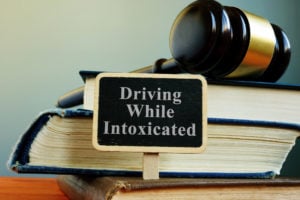
If you get convicted of a fifth DWI in Texas, you will likely face severe penalties. If the current charges are for a felony DWI and you have two previous felony convictions, the three strikes law in Texas could mean a life sentence because someone with two prior felony convictions is considered a habitual offender.
First and Second Offense DWI Penalties in Texas
Let’s explore how the penalties increase from one DWI conviction to the next. The Texas Department of Transportation states that the penalties for a first DWI offense can include:
- A fine of up to $2,000
- Between three and 180 days in jail
- Suspended driver’s license for as long as a year
A second DWI conviction doubles the fine and the driver’s license suspension and carries jail time between one month and one year.
For a legal consultation, call (713) 225-1900
Third and Subsequent Offense DWI Penalties in Texas
When someone gets a third, fourth, or fifth DWI conviction in Texas, the consequences become much harsher. The driver’s license suspension remains the same, but the fine could be as much as $10,000. Also, the time in prison could be 10 years or greater.
First, second, third, and subsequent convictions also result in the judge assessing a state fine at sentencing in addition to the DWI fine. The state fine can be $3,000, $4,500, or $6,000.
How the Texas Three Strikes Law Works in DWI Cases
The DWI penalties discussed above are for cases that do not involve the three strikes law, or habitual offender. The reason Texas has a three strikes law is supposedly to rehabilitate offenders so that they do not reoffend. Locking someone in prison for life does not give one an opportunity to show that they have changed their ways. Instead, many people push for three strikes laws to keep habitual offenders off the streets.
Also called habitual felon rules, three strikes laws impose minimum sentences of 25 years in prison and the possibility of a 99-year sentence, effectively a life sentence, for a third felony conviction. Let’s say that a person had two prior felony convictions. It does not matter if the previous convictions were alcohol-related or not.
If the current offense involved a drunk driving accident in which someone died as a result of the intoxication, the defendant is likely to get charged with a felony DWI. If convicted, this will be the third felony, triggering the three strikes law sentencing rules.
Click to contact our Houston lawyer today
The Elements of a DWI in Texas
According to TX Penal Code § 49.04, the prosecutor has to prove these elements to get a conviction of DWI in Texas.
The accused was:
- Driving a motor vehicle
- In a public place
- Intoxicated
Under Texas law, intoxication means that the defendant had a blood alcohol concentration (BAC) of 0.08 or higher or that the defendant lost the normal use of their mental or physical faculties due to the introduction of alcohol or drugs into the body.
For drivers under the age of 21, there is a zero-tolerance policy, so any measurable quantity of drugs or alcohol found could result in alcohol-related charges. Also, commercial drivers have a lower BAC threshold for a DWI.
Complete a Case Evaluation form now
Defenses to a Texas DWI
Your best option when facing DWI charges in Texas is to fight the charges and seek a dismissal or acquittal or to negotiate for a plea bargain. Since the prosecutor has the burden of proof, meaning that they have to prove that you are guilty and you do not have to prove your innocence, one tactic is to attack the prosecutor’s evidence against you.
If you can create a reasonable doubt about even one of the required elements of a DWI, you might win a not guilty verdict. Weakening the prosecution’s case is not a game for amateurs. This strategy requires knowing Texas DWI laws inside and out and being a master of criminal procedure.
Texas Code of Criminal Procedure 38.23 states that evidence that police or prosecution obtained improperly should not be used against a defendant at trial. Your Houston DWI Lawyer might file a motion to suppress evidence if:
- The police officer who performed the traffic stop lacked reasonable suspicion or probable cause to pull you over or perform the sobriety tests.
- The police seized evidence illegally (for example, without a valid search warrant) when the facts required one.
If a motion to suppress isn’t appropriate in your case, there are other things that can be argued to a jury, such as:
- The breathalyzer malfunctioned.
- Someone else was driving the vehicle.
- The evidence would be unduly prejudicial.
- A law enforcement official violated your constitutional rights.
If any of these things happened, or there were other irregularities, you will want to bring it to the attention of your Texas DWI lawyer so that they can investigate and take appropriate action.
A fifth DWI conviction in Texas could ruin your life and hurt your family financially and socially. If you have been charged with a fifth DWI, you will want to work with an attorney who will be aggressively fighting for you. You can contact Blass Law to get started today.
Call or text (713) 225-1900 or complete a Case Evaluation form


